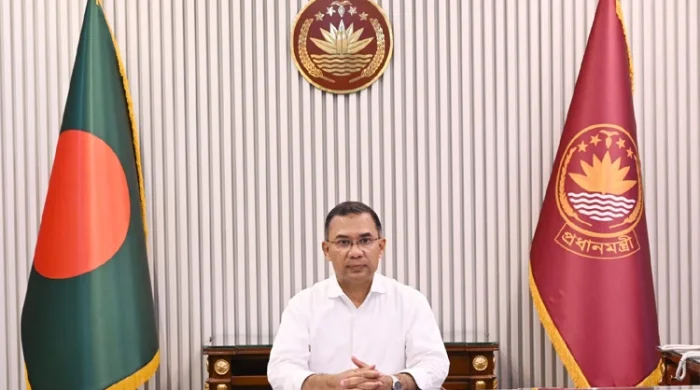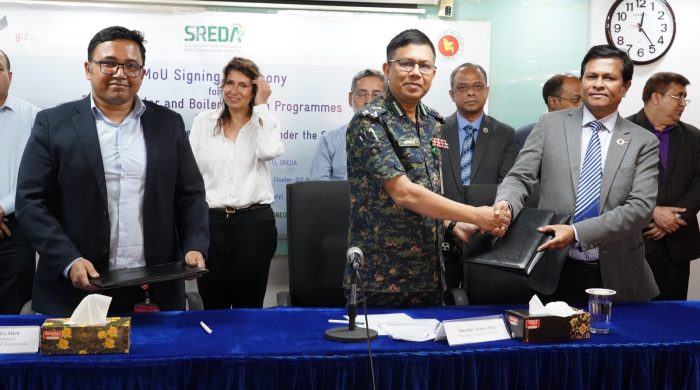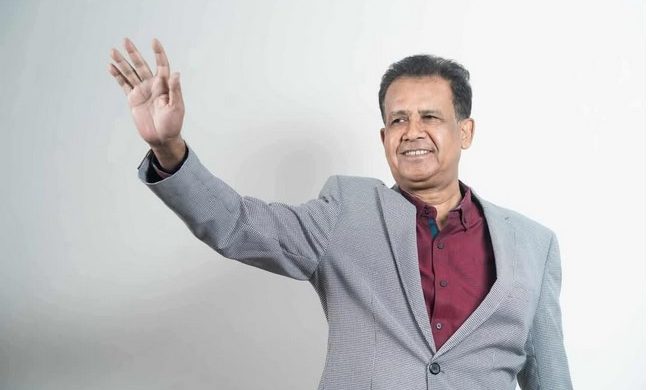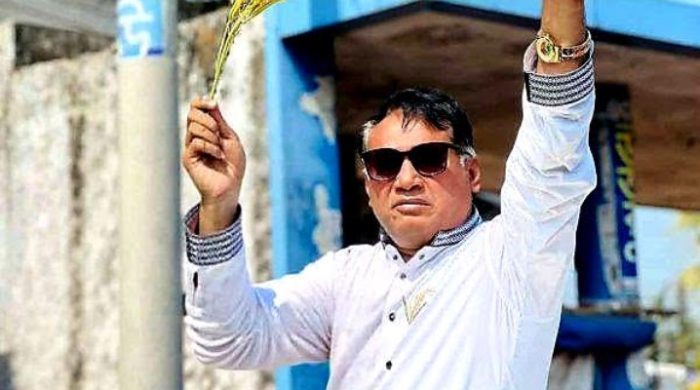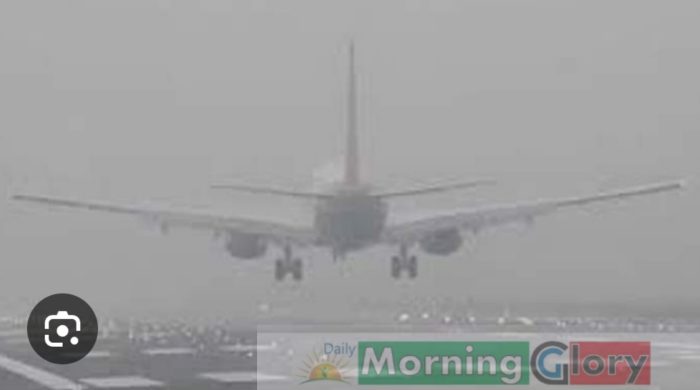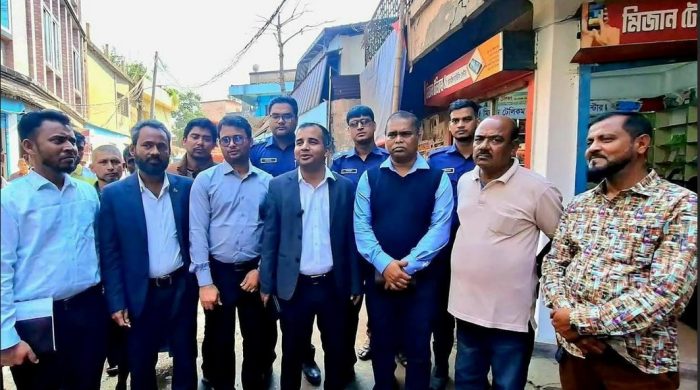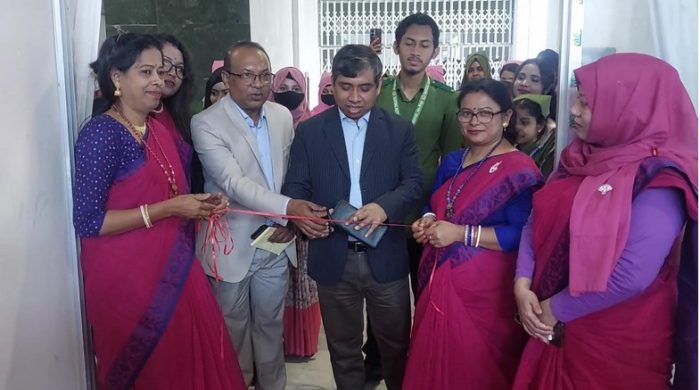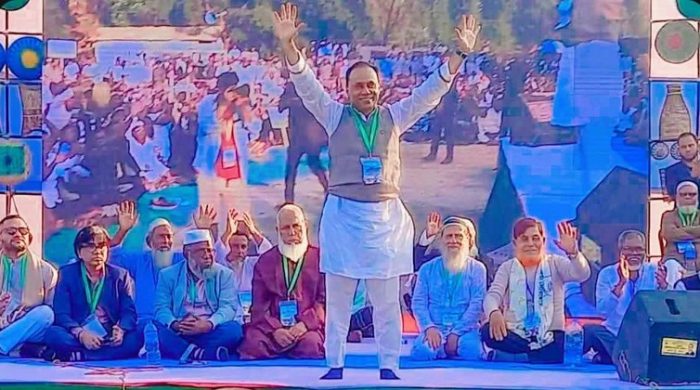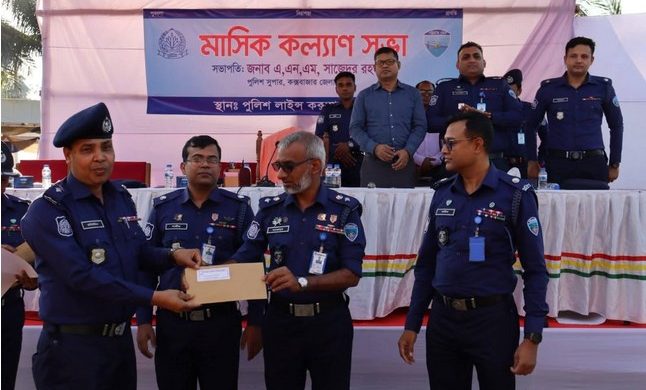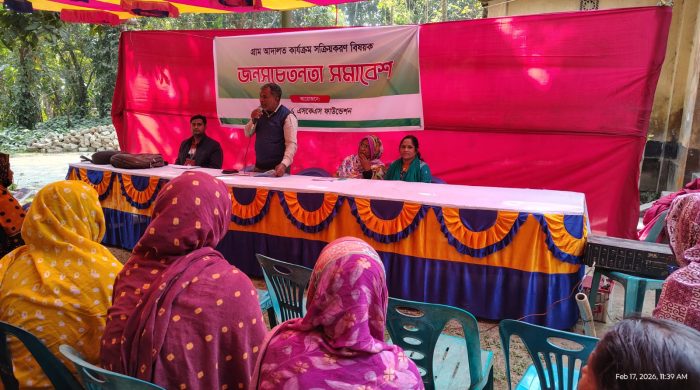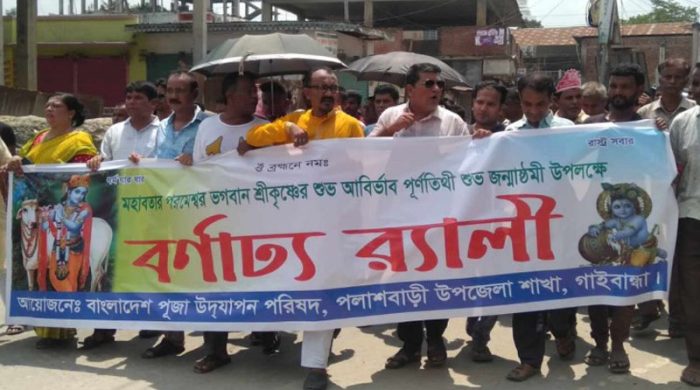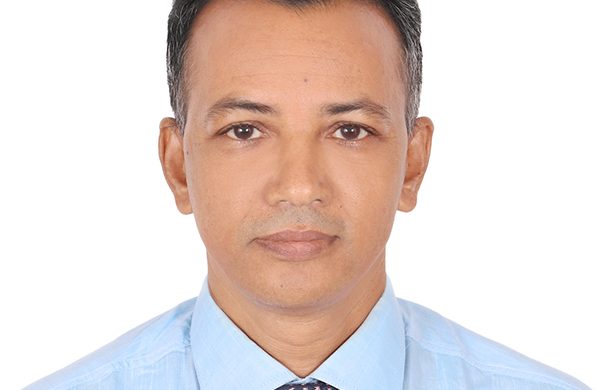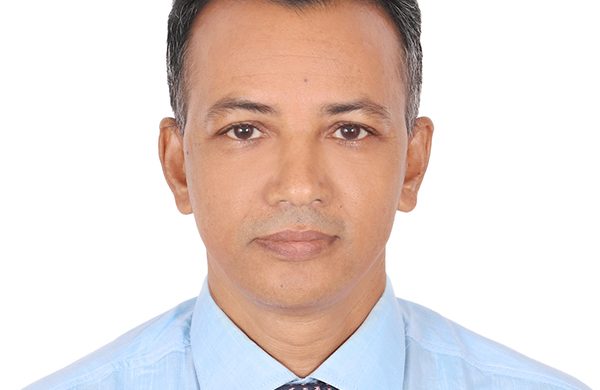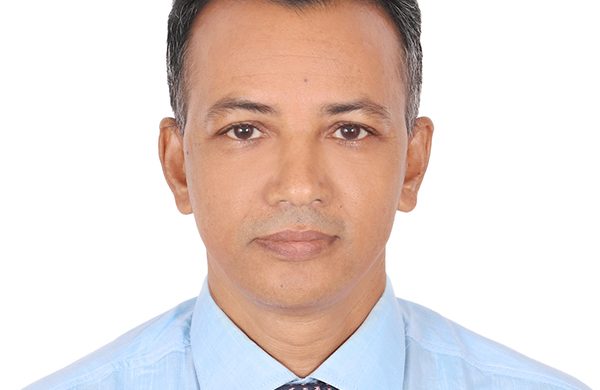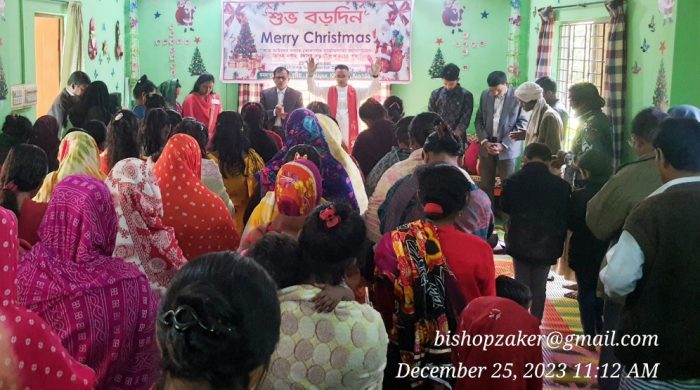Once underprivileged Panchagarh now role model of development
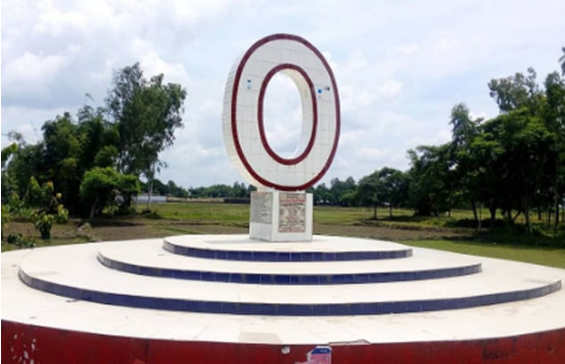
Once underprivileged Panchagarh district is now a role model of development, as this backward locality has been changed by the planned development of the government. The agriculture-dependent district has seen unprecedented development in the industrial, communication, infrastructure and other sectors, which has changed the living and livelihood standard and quality of people of the far-northeast area of the country. The stories of the changed of the district had begun when Banglabanda Land Port was established in 1997 by the then Awami League government for import and export operations with Nepal. In 2011, an agreement was also signed with neighbouring India for import and export activities. Along with, in 2017, trade with Bhutan started through this port. Since the immigration service started at this land port in 2016, it has become easier for Bangladeshis to visit India. While visiting that port, several tourists from both the countries told BSS that it is very easy to complete immigration and other necessary procedures through this port and the immigration service is very good. According to the Panchagarh District Administration, Banglabandha is the only land port in the country, which has the geographical advantages to communicate with four neighbouring countries -Nepal, India, Bhutan and China. Md. Jahurul Islam, Deputy Commissioner of Panchagarh, said that in the last 15 years, this land port has been automated step by step under the direct guidance of Prime Minister Sheikh Hasina. “A business friendly import-export activity has been introduced here alongside the easy and comfortable immigration services for the tourists,” he added. According to the district administration, Banglabandha Land Port, situated in Tentulia upazila, is the country’s only four-nation land port through which export-import activities remain functional with India, Nepal and Bhutan. Every day 5000 workers work at the port. As a result, around 35000 people’s life and living directly and indirectly depend on the port. Through the port, stone, maize, oil-cake, ginger, wheat, rice and fruits and so on are imported from India while produced and different processed goods are imported from Nepal and Bhutan. Besides, parts, glass sheet, medicines, potato, juice, cotton bag and food items are exported through the port. A master-plan is being implemented to turn the port into a modern one. Apart from the land port, every sector in the district has witnessed the touches of development by the Awami League government under the leadership of Prime Minister Sheikh Hasina, which has demonstrated the stories of the changes everywhere.
Agriculture Sector:
No agricultural input assistance card was distributed in 2005-06 and 2007-08 period but a total of 193278 such cards were distributed during the Awami League led government tenure till 2022-23 period in the district. A total of 1,17,442 farmers opened bank accounts with Taka 10 till 2022-23 but the number was zero before 2007-08 period. Agricultural incentives have been provided to 54,390 farmers till 2022-2023 period but no farmers got such incentives before AL government assumed office in 2009.
Education Sector:
Some 11 multimedia classrooms have been set up between 2009 and 2023 but there was no such facility before 2009. A total of 343 primary schools have been nationalized in 2009-2023 period but no primary school was nationalized during 2006-2008. In 2006-08 period, 60 percent free textbooks were provided but 100 percent textbooks were distributed among students free of cost between 2009 and 2023. The percentage of construction or repairing of educational institutions was 137 in 2006-08 period while it is 258 in 2009-23 period. One computer lab or Sheikh Russel Digital Lab has been set up in the district in 2009-23 period but there was no such lab before the timeframe. Any teacher’s job was not nationalised in 2006-08 period but 1340 teachers were brought under the facilities in 2009-23 period. No new post or pre-primary post for teachers was created in 2006-08 period while 343 posts have been created in 2009-23 period. Dropout rate was 17.08 percent in 2006-08 period while it reduced to 3.30 pc in 2009-23 period. Literary rate was 51.08 pc during 2006-08 period while it stood at 73.59pc in 2009-23 period. Number of digital smart classroom was zero but it stood at five. Number of approved posts for headmasters was 309 which is now 663. Number of approved posts for assistant teachers was 927 which is now 3448. Number of enrolled students is 142876 now. Once there was no cooked meal programme but such programme has been introduced for Class III-Class V. There was no wash block while 302 such blocks have been constructed. Boundary wall was not constructed at any institutions but boundary walls have been constructed at 73 institutions during AL period. No laptop was distributed while 558 laptops have been provided. There was no Wi-Fi connection at any institutions while students of 521 schools have been enjoying this facility now. New primary school was not constructed in enclave areas but now five primary schools have been set up.
Health Sector:
In 2006, there were 31-bed four upazila health complex hospitals in four upazilas in Panchagarh district. At present, the four upazila health complex hospitals have been upgraded to 50-beded modern hospitals. Besides, only 100-beded sadar hospital of the district town has been upgraded to 250-beded eight-storied modern hospital. Works are underway to recruit more doctors, nurses and other staff for enhancing the standard of health care. Health department in the district achieved unprecedented success in the district likewise other districts in facing the global coronavirus (Covid-19) situation. So far, 24,62,199 people were given first, second and third doses of vaccines while 921 persons received fourth dose. So far, 4451 people have tested positive for Covid-19. Of them 4355 people recovered illness while the number of deaths is 69. A total of 123606 students aged from 12 to 17 received first dose of vaccine while 116477 students aged from 12 to 17 received second dose. A total of 141971 students aged from 5 to 12 received first dose of vaccine.
Rural Infrastructure:
Till 2008, 305 kilometer upazila road was constructed under LGED. Later, 690 concrete roads stretching 790 kilometer have been constructed from 2009 to 2023 under LGED. As a result, the quantity of concrete roads stood at 1095km in the district. Besides, 36.5km rural roads in the five upazilas have been upgraded to HBB (herringbone bond) through project implementation officer’s office under the Disaster Management Ministry from 2018 to 2022. The number of bridges and culverts was 488 (total length around 11,685 meter) till 2006. Later, more 492 bridges and culverts (total length 11,742 meter) were constructed from 2009 to 2022 under LGED and Disaster Management Ministry through project implementation officer’s office. As a result, the total number of bridges and culverts stood at 980 (total length around 23427 meter). Besides, infrastructural developments were made at 37 markets and haats with construction of buildings having modern facilities.
Power Sector:
Total power supply was 3.55 megawatt in 2005-06 period which stood at 17 mw in 2022-23. The number of people under electricity coverage was 40.5 percent earlier, which is now 100 percent. Once power service line was 978 km, which is now 6175 km. The number of subscribers of electricity has now risen to 2,73,543 from 28305.
Railways:
Massive development took place in railways sector in the last 20 years. New railway tracks were constructed, new coaches were added, and modern railway platforms were built during the period. Now five inter-city trains and a local one are running in the district for building a modern railway network in the district. Works of constructing modern railway tracks from Panchagarh town to Tentulia for inter-country railway communication are on.
Water Resource Management:
Around 10 rivers enter Bangladesh through the district including Karotoa, Mahananda, Dahuk, Talma, Berong, Buri Teesta, Gobra, Tangon and Nagor. Around 871 km river digging and embankment constructions were done every year till 2005-06 in the district. But, it stood at 4061km now.
Social Safety Net:
The number of old age allowance recipients was 10020 in 2005-2006, 12540 in 2007-08 and 45,201 in 2022-23. Widow and husband deserted allowance holders were 6740 people in 2005-06 and 8212 in 2007-08 while the number is now 23,571. The number of recipients of allowance of persons with disabilities was 1270 in 2005-06 and 3428 in 2007-08 while the number is 16528 now. A total of 174 people have been brought under ‘Living standards development program for the backward people’ till 2022-23 which was zero till 2008. A total of 795 physically challenged students were given education scholarships, 172 people were provided with education stipends under backward people programme and one person was under living standard development programme for hijra community till 2022-23 period since 2009.
Enclaves:
As per the Land Boundary Agreement, 1974 and Protocol of 2011, a total of 36 Indian enclaves situated in Panchagarh district were included in Bangladesh territory since July 31 midnight of 2015. Bangladesh’s flag was hoisted formally in the enclaves at 6am on August 1, 2015. A total 19,243 people are in the land of 11932.78 acres of land in the 36 abolished enclaves. In the long 68 years, there were no developments in the areas. Five primary schools, 13 secondary schools, three colleges and one madrasah have already been constructed there. Five community clinics have been built. LGED constructed 102km concrete roads at a cost of Taka 68 crore, 10 bridges and culverts at a cost of Taka 11.72 crore, 11 mosques, four temples, five markets, one graveyard and 2 river ghats. Electricity line has been installed in 238 kilometer and 8000 subscribers are enjoying electricity connection while one sub-station has been set up at Bhawlaganj at a cost of Taka 8 crore.
Ashrayan:
In Mujib Barsho, a total of 4850 landless and homeless families have been given abodes in three phases in the district. Of them, 1496 were rehabilitated in Panchagarh sadar upazila, 423 in Boda, 1803 in Debiganj, 727 in Tentulia and 401 in Atwari.
Tourism:
A master-plan for Smart Tourism City Panchagarh has been adopted to build the district as a tourism hub in the northern region. Tourist bus facilities will be ensured.
Tea:
The third tea auction centre is going to be opened here within a month as the cultivation of tea in plain land is being expanded rapidly day by day in the region. “Third tea auction center will be introduced here within one month,” Deputy Commissioner of Panchagarh district Md. Jahurul Islam told BSS. He said the authorities concerned have already completed preparations in this end. The country has two tea auction centres, one in Chattogram and another is in Sylhet’s Sreemangal. The number of tea gardens in the plain land of Panchagarh and Thakurgaon along with adjacent areas is increasing day by day as it is brining more money for the farmers. While visiting this area, interest in tea cultivation was seen more than other crops among the farmers of Panchagarh and Thakurgaon districts. After beginning operations at the Panchagarh auction centre, tea producers in the northern region of Bangladesh will benefit for reduced transportation cost. In the initial stage, its activities will be conducted through a virtual platform before gradually becoming a full-fledged auction centre. Jahurul Islam said “overall, the activity of the auction centre will help develop the quality of the produced tea.” As per the official documents obtained from the office of deputy commissioner, it is found that some 12,079 acres of land were under tea cultivation in fiscal year 2022-23 in Panchagarh district. The area of land for tea cultivation in fiscal year 2005-06 was just 925 acres in Panchagarh district. It is known that in 1996, with the initiative of Prime Minister Sheikh Hasina, the people of Panchagarh took the initiative to cultivate tea in the plains. Following that, tea cultivation started in this district in 1999. The production of green leaves for tea cultivation from Panchagarh district in fiscal year 2022-23 was 9,02,74,632 kilograms while it was only 2,30,000 kilograms in fiscal year 2005-06. The amount of produced tea for fiscal year 2022-23 was 1,77,81,938 kilogram while it was 44,500 kilogram in fiscal year 2005-06. Officials said that the number of big tea garden in Panchagarh was only one with 172 small ones. But, the number of big tea gardens in fiscal year 2022-23 is nine with 8355 small ones. They said the number of running mills was one in fiscal 2005-06 while it is 26 in fiscal of 2022-23. Employed tea garden workers were 1,475 in fiscal 2005-06 while it is 15,000 in fiscal 2022-23. The income from tea sell was Taka 1.2 crore in fiscal 2005-06 while it is Taka 280 crore in fiscal 2022-23.
Cashless Services:
People in remote areas in the district are now enjoying cashless services utilising the opportunities of “digital Bangladesh”, a campaign initiated by Prime Minister Sheikh Hasina almost 15 years back, which is also a step towards building “Smart Bangladesh”. Living in a hard-to-reach village, it was unthinkable before 2009, but now it is the reality as people are getting over 20 important services without any hassle from Union Parishads here staying at home. While visiting the Panchagarh Sadar Union Parishad complex, a beneficiary, Abdullah Al Faruk who is a businessmen told BSS that he has received his required trade license just providing his NID number. “This cashless system is facilitating any person to get his desired document just inputting NID number to the system as the officials can easily verify the right person scrutinising all relevant information of the person,” he said. Faruk said that the official has provided him the trade license within 2-3 minutes after matching the required information from his NID. “We’ve got rid of wastage of time and money which was unavoidable in the past,” he added. Panchagarh entered the cashless era through a digital transaction after Dhaka when this service has been introduced first in the Tirnoihat Union of Tetulia. With this, the Union Parishad (UP) of the marginal upazila has been added to Smart Bangladesh. Cashless services later introduced in other UPs. The service receivers can take 20 services very easily from these. People are now getting this service from any part by visiting the uniontax.gov.bd website staying at home. Deputy Commissioner Md. Jahurul Islam said that over 70,000 people of 43 UPs and three Pourasovas in the district have received service using this uniontax.gov.bd and pouroseba.gov.bd platforms. He said that after the introduction of the Digital Union Cashless Service, the revenue is being deposited directly into the UP’s bank account due to paying the service price on the digital payment gateway. As a result, the UP has no opportunity to manage the money, he added.









